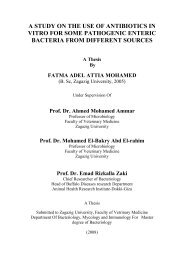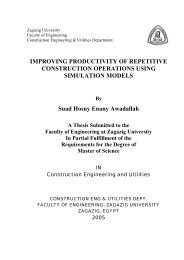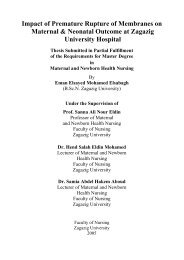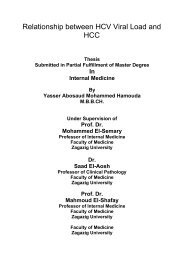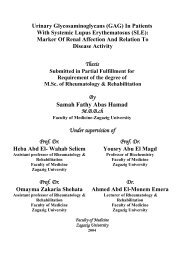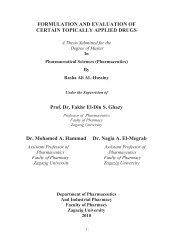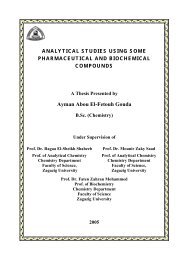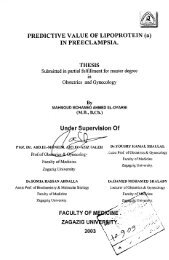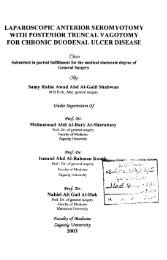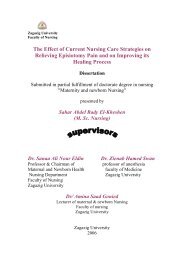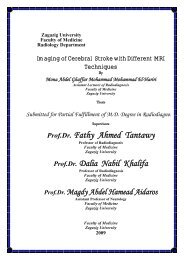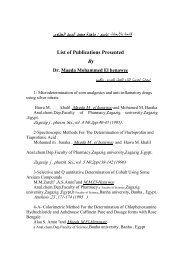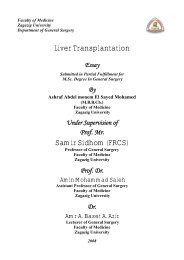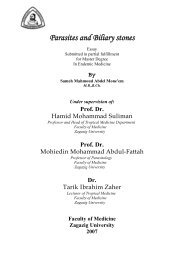Study of respiratory symptoms among sputum positive
Study of respiratory symptoms among sputum positive
Study of respiratory symptoms among sputum positive
Create successful ePaper yourself
Turn your PDF publications into a flip-book with our unique Google optimized e-Paper software.
B) Delyed- type hypersensitivity (DTH)<br />
Delyed type hypersensitivity (DTH) is immunologically the same<br />
process as CMI, involving Th1- type T cells and their cytokines frequently<br />
use. The terms tissue damaging DTH or cytotoxic DTH to represent the<br />
immunologic reaction that causes caseous necrosis. Such necrosis develops<br />
locally wherever, the tuberculin-like antigens form the bacillus reach<br />
excessive concentration (Dannenberg, 1999). CMI and DTH immunologic<br />
processes produced by the host play key roles in the pathogenesis <strong>of</strong><br />
tuberculosis (Dannenberg, 1991). The relationship between CM! and DTH<br />
in the control <strong>of</strong>facultative intracellular microorganisms has been a subject<br />
<strong>of</strong> debate for most <strong>of</strong> 20 th century. From a histologic study <strong>of</strong> the<br />
tuberculous lesions and the bacillary growth curves it as apparent that both<br />
CMI and DTH inhibit the multiplication <strong>of</strong>the tubercle bacillus equally<br />
well. CMI does so, by activating macrophages to kill the bacilli they ingest.<br />
Tissue damaging DTH does so by destroying bacilli-laden, non activated<br />
macrophages and near by tissues there by eliminating the intracellular<br />
environment that is so favorable for bacillary growth (Luri, 1964 and<br />
Dannenberg, 1991).<br />
Thus, the immune system <strong>of</strong>both tuberculin <strong>positive</strong> hosts with good<br />
CM! and tuberculin <strong>positive</strong> hosts with poor CM! can arrest bacillary<br />
growth. The host with poor eMI does so, however, with much damage to<br />
its own tissues. Eventually, the host with good eMI may recover, but the<br />
host with poor CMI dies from excessive tissue destruction (Dannenberg,<br />
1999). Tissue-damaging DTH causing local necrosis stops the initial<br />
.i. I bacillary growth within nonactivated macrophages. Which gives the host<br />
time for eMI to develop local macrophage activation such cytotxic DTH<br />
can never take the place <strong>of</strong> CMI because the bacilli that escape from the<br />
21



